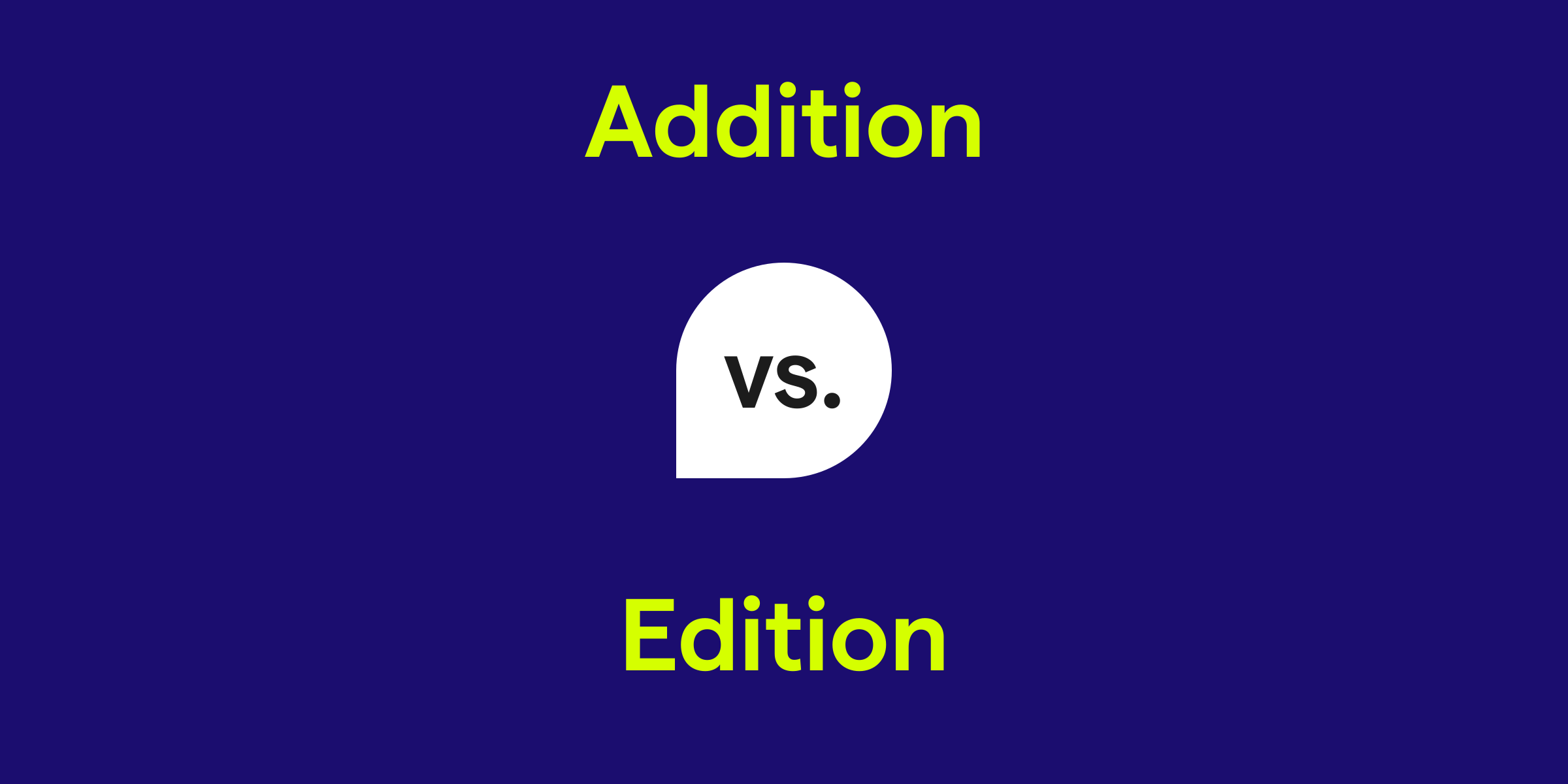Addition vs. Edition: What's the Difference?
Understanding the difference between addition and edition is essential for clarity in writing and speaking. An addition refers to a part that has been included or the act of including something new, often used in the context of mathematics or composite lists. An edition, on the other hand, signifies a particular form or version of a published text or work, reflecting changes, updates, or revisions compared to previous releases.

How do you use the word addition in a sentence?
Use the word addition when you want to express the inclusion of something or to describe something that has been added. It's appropriate in mathematical contexts to refer to the sum of two or more quantities, as well as in scenarios where new parts, features, or members are joined to existing groups or structures.
Examples of addition in a sentence
- The new pool is a fantastic addition to the backyard.
- During the meeting, they discussed the addition of a new team member.
- Solve for x in the following addition problem: 14 + x = 29.
How do you use the word edition in a sentence?
The word edition is used to describe a specific form or version of a published work, including books, magazines, and software. It communicates the idea that this version has been edited or revised in some way, whether through content updates, design changes, or limited releases.
Examples of edition in a sentence
- She owns a rare first edition of her favorite novel.
- The 20th-anniversary edition of the game comes with exclusive bonuses.
- They released a new edition of the software featuring several security patches.
Addition and edition definition, parts of speech, and pronunciation
Addition definition:
Addition (noun): The process of adding or joining something to something else, or the result of this process. In mathematics, it refers to the operation of finding the total or sum by combining two or more numbers or amounts.
Addition parts of speech:
Addition pronunciation:
Pronunciation: /əˈdɪʃ.ən/.
Edition definition:
Edition (noun): A particular form or version of a published text or work. It usually specifies changes or revisions from previous versions and may come as limited releases or as part of a series.
Edition parts of speech:
Edition pronunciation:
Pronunciation: /ɪˈdɪʃ.ən/.
Addition (noun): The process of adding or joining something to something else, or the result of this process. In mathematics, it refers to the operation of finding the total or sum by combining two or more numbers or amounts.
Addition parts of speech:
- As a noun: The library's collection received a significant addition last year.
- As a noun in mathematics: In basic addition, if you have three apples and add two more, you now have five apples.
Addition pronunciation:
Pronunciation: /əˈdɪʃ.ən/.
Edition definition:
Edition (noun): A particular form or version of a published text or work. It usually specifies changes or revisions from previous versions and may come as limited releases or as part of a series.
Edition parts of speech:
- As a noun: The second edition of the textbook includes updated statistics.
- As a noun used metaphorically: The latest fashion edition of the magazine featured vibrant spring colors.
Edition pronunciation:
Pronunciation: /ɪˈdɪʃ.ən/.
Addition vs. Edition in a nutshell
Addition and edition have distinctly different meanings and uses in the English language. The former describes the act of adding or something that has been added, including its mathematical application. The latter refers to a specific version of a published work, often implying updates or revisions. Recognizing when to use each term is pivotal in accurate and impactful communication.
Get AI Writing Assistance Wherever You Type
Make sure your vocabulary is on point and every punctuation mark is in the right place, no matter where you’re working. Grammarly works across more than 1 million websites and apps so you can improve your writing without copying, pasting, or breaking focus.

More Commonly Confused Words
Interest piqued? Pore (not pour) over other commonly confused words to help your writing reach peak (not peek) performance.